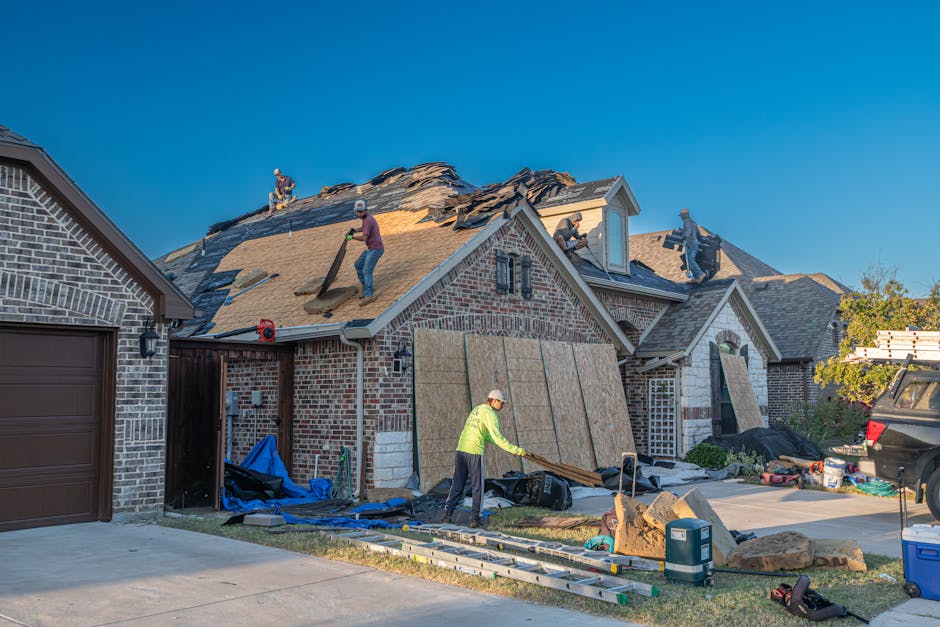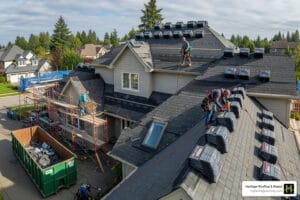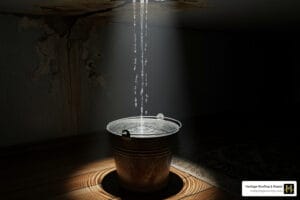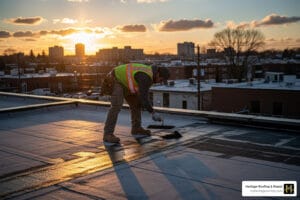Understanding the True Cost of Your Roof Replacement
The average roof replacement cost is around $9,313 for a typical 1,500-square-foot home, though prices can vary dramatically from $5,800 to $47,000 depending on your home’s specific needs. Replacing a roof is a major investment, but understanding the cost breakdown is key to budgeting wisely. As one of Northwest Arkansas’s most trusted roofing companies, we believe in transparency. This guide will help you steer the process and understand what goes into the final price of a quality roof replacement.
Quick Cost Reference:
- Small homes (1,000 sq ft): $5,573 – $6,100
- Average homes (1,500 sq ft): $7,158 – $11,084
- Large homes (2,000 sq ft): $10,000 – $18,000
- Cost per square foot: $4.50 – $12.30 installed
Key factors affecting your final price:
- Material choice (asphalt shingles vs. metal vs. tile)
- Roof complexity and pitch
- Labor costs (typically 60% of total project)
- Location and local building codes
As Rex Wisdom, owner of Heritage Roofing & Repair with over 50 years of family experience in Northwest Arkansas roofing, I’ve helped hundreds of homeowners make smart decisions about their roofs, from storm damage repairs to planned upgrades. This guide breaks down everything you need to know to make an informed choice for your home.
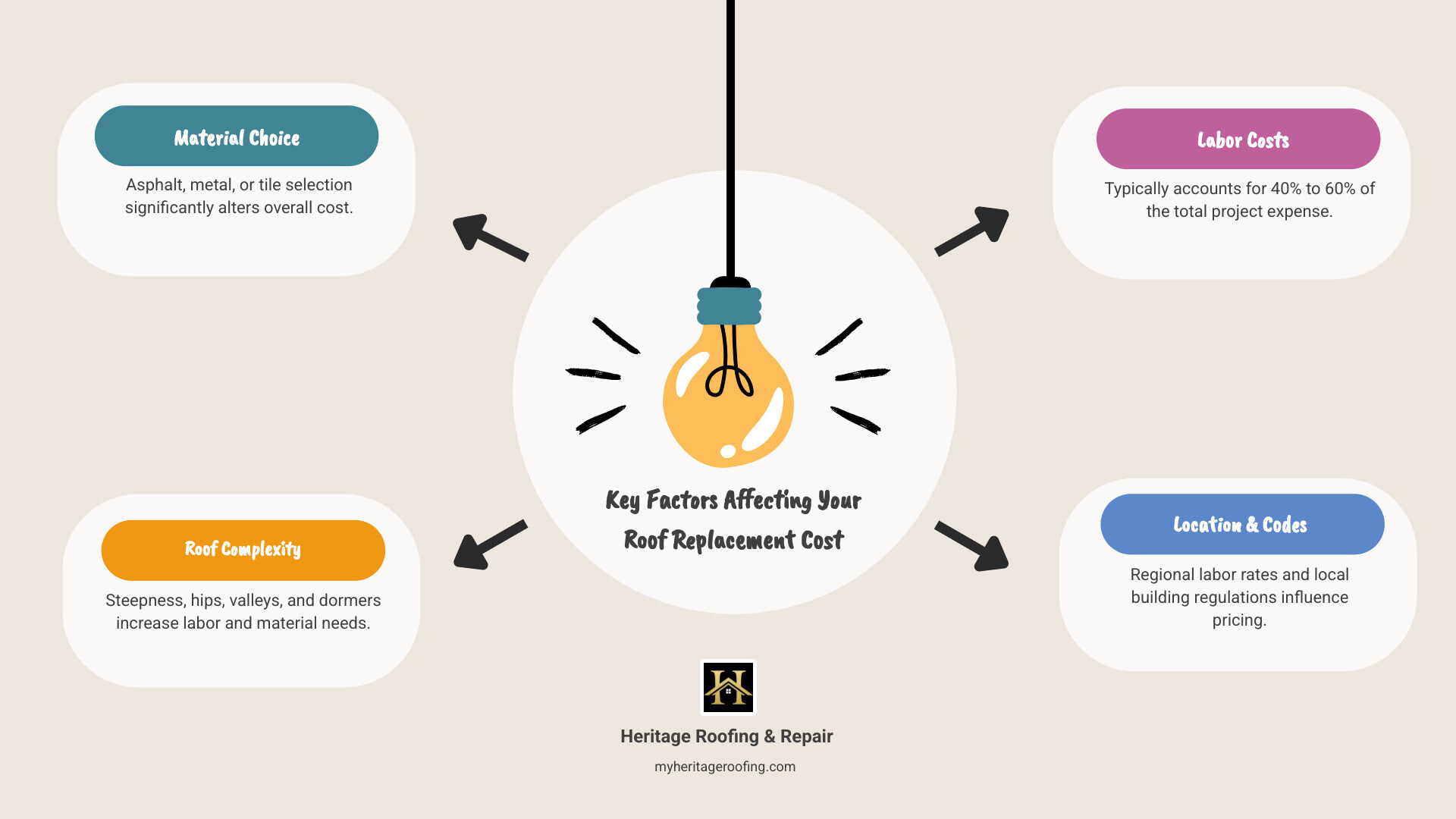
The National Average Roof Replacement Cost in 2024
The price tag for a new roof can range from $5,800 to over $47,000, a wide spectrum that reflects the uniqueness of every home and project. The key to understanding your potential cost lies in breaking down the price per square foot. A “roofing square,” which equals 100 square feet, is the standard unit of measurement in the industry. For a common material like asphalt shingles, homeowners can expect to pay between $4.50 and $10 per square foot installed. Labor typically accounts for a significant portion of this, often making up 40% to 60% of the total project cost.
Let’s look at some average figures for asphalt shingle roofs, which are the most common and often the most affordable choice:
| Roof Size (Square Feet) | Average Cost Range (Asphalt Shingles) |
|---|---|
| 1,000 | $5,573 – $6,100 |
| 1,500 | $7,158 – $11,084 |
| 1,700 | $7,153 – $9,000 |
| 2,000 | $7,283 – $18,000 |
| 2,500 | $7,686 – $22,000 |
Note: These are national averages and can vary based on factors discussed later.
The national average for a new roof replacement hovers around $9,100, according to data from Angi.com. As the table shows, this figure fluctuates based on roof size, but your final price will depend on the specific factors discussed in this guide.
What’s included in a standard roof replacement estimate?
When you receive an estimate from a reputable roofing contractor, it’s a comprehensive breakdown of services and materials. Understanding what’s included helps you compare quotes accurately. A standard estimate typically covers:
- Tear-off of old materials: Removing all existing roofing layers down to the decking. This is crucial because overlaying a new roof can void warranties and hide structural issues. This typically costs $1 to $5 per square foot.
- Disposal and dump fees: The old materials must be properly disposed of, a cost factored into the estimate, usually $500 to $1,000.
- New underlayment: This protective layer is installed over the roof deck before the shingles, providing an additional moisture barrier. It costs $1.50 to $2.10 per square foot.
- Ice and water shield: A self-adhering membrane that offers superior protection in vulnerable areas like eaves and valleys, costing $1.87 to $2.53 per square foot.
- Drip edge and flashing: Drip edge directs water into the gutters, while metal flashing is installed around chimneys and vents to prevent leaks.
- Shingles or other primary material: This is the main roofing material you choose, which is a significant driver of the overall price.
- Ridge cap and ventilation: Ridge caps cover the roof’s peaks, while proper ventilation is vital for attic air circulation, preventing heat and moisture buildup and extending your roof’s lifespan.
- Labor and installation: This covers the crew’s time and expertise, typically making up about 60% of the total cost. Professional roofers generally charge $40 to $90 per hour per worker.
- Permits: Most localities require a permit (up to $500) to ensure work meets local building codes.
- Roofing Warranty: A reputable contractor will offer a warranty on both materials and workmanship, providing you with peace of mind.
Key Factors That Influence Your Final Bill
While national averages provide a baseline, the specific characteristics of your home will determine the final cost. From the materials you choose to the complexity of your roof’s design, each element plays a role in the total price.
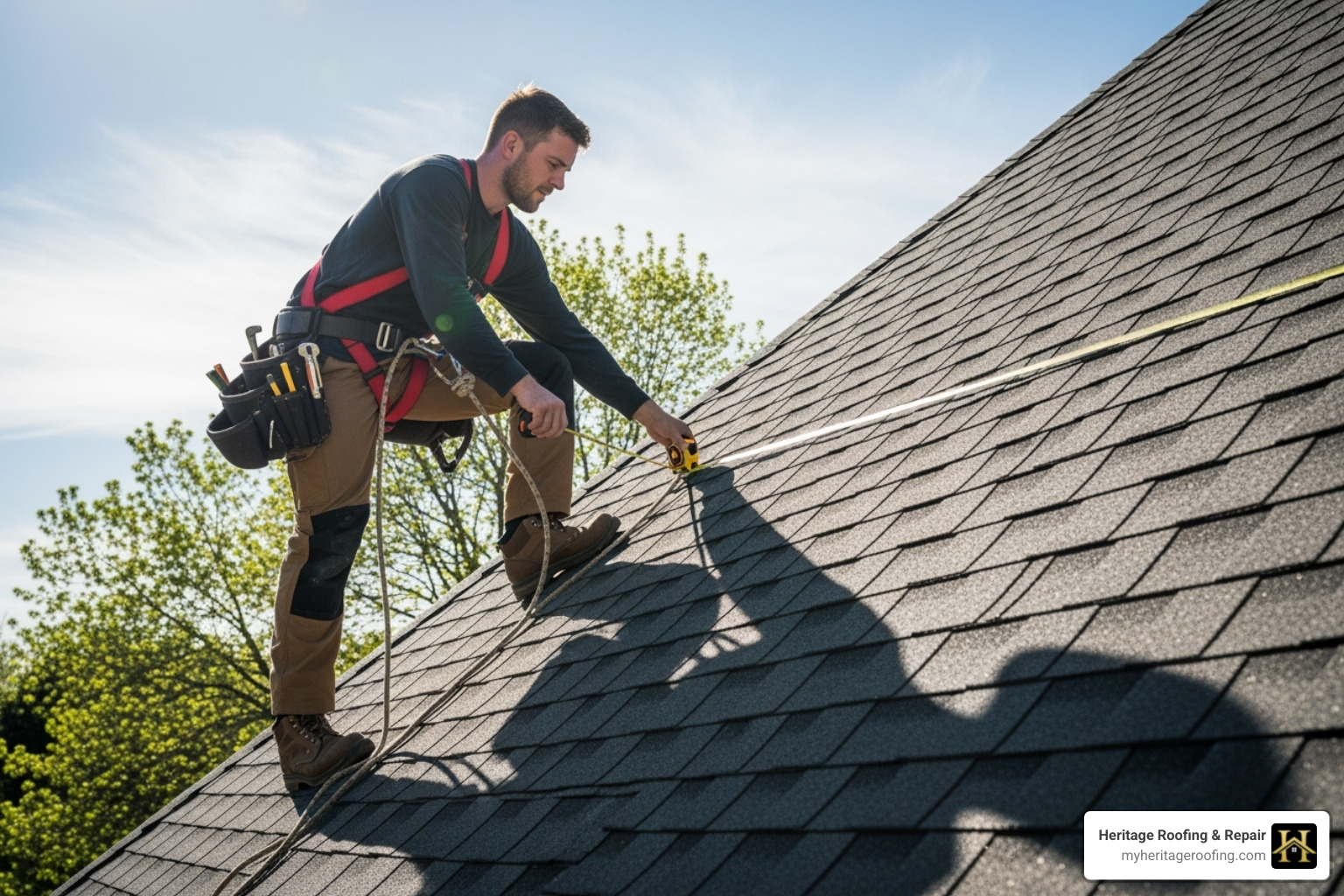
How roof size and pitch affect the average roof replacement cost
The actual surface area of your roof is almost always larger than your home’s footprint due to its slope, or “pitch,” and any overhangs. A larger roof requires more materials and labor, directly increasing the cost. Roofers measure in “squares” (100 square feet).
The roof’s pitch also plays a major role. Steeper roofs (a pitch over 6:12) are more dangerous and time-consuming to work on, requiring special safety equipment like harnesses and staging. This can increase labor costs by 10-30%. Similarly, complex roof designs with multiple hips, valleys, dormers, or skylights require more precise cutting and sealing, adding to both labor and material costs. A simple gable roof will always be less expensive to replace than a multi-faceted one.
Roofing materials: A cost & lifespan comparison
Your choice of roofing material is arguably the biggest determinant of your average roof replacement cost. Each material offers a unique balance of aesthetics, durability, lifespan, and price.
| Material Type | Average Cost Per Square Foot (Installed) | Lifespan (Years) | Key Maintenance Needs |
|---|---|---|---|
| Asphalt Shingles | $4.50 – $10 | 15-30 | Gutter cleaning, granule loss monitoring, moss/algae treatment |
| Metal Roofing | $6.50 – $17 | 50-100+ | Occasional panel cleaning, fastener checks, sealant inspection |
| Tile Roofing | $10 – $27.50 | 50-100 | Periodic cleaning, occasional tile replacement (due to breakage) |
| Composite Slate | $8 – $18 | 40-50 | Low maintenance, occasional cleaning |
Let’s dive a bit deeper into some popular choices:
- Asphalt Shingles: The most common and affordable roofing material. Basic 3-tab shingles are the most budget-friendly (15-20 year lifespan). Architectural shingles offer a more dimensional look, better durability, and a longer lifespan (25-30 years), providing a great balance of cost and quality.
- Metal Roofing: Modern, sleek, and incredibly durable. Metal roofs can withstand extreme weather, are fire-resistant, and can help lower energy bills. While the upfront cost is higher, a metal roof can last 50-70 years or more, making it a wise long-term investment.
- Tile Roofing: Includes concrete and clay tiles, known for longevity and a distinctive look. They can last 50-100+ years but are very heavy and may require structural reinforcement, which adds to the cost ($300-$800 for a structural check).
- Composite Slate/Shake: Made from recycled materials, these synthetic options mimic the look of natural slate or wood shakes without the high cost or maintenance. They cost between $5 and $12 per square foot and have a lifespan of 25-50 years.
- Wood Shingles/Shakes: Offer a natural, rustic look but require more maintenance and are prone to mold in humid climates. Lifespan is 30-50 years.
- Natural Slate: The most durable and premium roofing material, lasting 125-200 years. It’s a true “lifetime” roof but comes with the highest price tag.
For more detailed information on different materials and their benefits, check out our page on Roofing Materials.
How labor and location impact the average roof replacement cost
Beyond materials, labor costs are a significant component of your total bill, typically accounting for 40% to 60% of the project. This percentage can fluctuate based on several factors:
- Regional labor rates: The cost of labor varies by region. High cost-of-living areas will have higher labor rates than rural areas.
- Local material availability: If specialized materials need to be transported long distances, this can add to the overall cost.
- Contractor experience and overhead: More experienced and reputable contractors might charge more, but their expertise often leads to higher quality work and fewer issues down the line. Their overhead (insurance, equipment, training) is also factored into their pricing.
- Demand: During peak roofing seasons (late spring and early fall), demand for contractors can drive up prices. Scheduling during the off-season might lead to better deals.
Our team at Heritage Roofing & Repair is proud to serve homeowners across Northwest Arkansas, where we understand the unique climate challenges and building codes that affect local roofing costs.
Repair or Replace? Making the Right Financial Decision
Deciding whether to patch a problem or invest in a full replacement is a critical choice. The age of your roof, the extent of the damage, and your long-term plans for the home all factor into this decision.
Telltale signs your roof needs a full replacement
If you’re noticing any of these red flags, it might be time for a full roof replacement:
- Roof age (20+ years): Most asphalt shingle roofs last 20-30 years. If yours is nearing this age, replacement is often more cost-effective than frequent repairs.
- Widespread cracked or curling shingles: Brittle, cupping, or clawing shingles are a sign of advanced wear and can no longer shed water effectively.
- Bald spots with missing granules: Granules protect shingles from UV rays. If you see bald spots or find lots of granules in your gutters, the roof is deteriorating.
- Chronic leaks in multiple areas: While a single leak can be repaired, multiple leaks suggest systemic failure.
- Sagging roof deck: A visible sag or dip in the roofline is a serious structural issue requiring immediate attention.
- Moss or algae growth: Extensive growth can trap moisture and accelerate shingle deterioration.
If you’re unsure about the extent of your roof’s wear and tear, we offer free, professional roof inspections to give you an honest assessment.
When a roof repair is the smarter choice
Not every roofing issue warrants a full replacement. Sometimes, a targeted repair is the most sensible and cost-effective solution. A repair may be sufficient for:
- Isolated damage: Damage to a small section from a fallen branch or wind.
- One or two missing shingles: This is a common and affordable fix after a storm.
- A single, localized leak: If the rest of your roof is in good condition, a simple patch can solve the problem.
- A younger roof (under 15 years old): Minor issues on newer roofs can often be repaired easily without compromising the overall system.
- Budget constraints: A professional repair can buy you time to save for a full replacement.
Our team is adept at assessing whether a repair will truly solve your problem or if it’s just delaying the inevitable.
How a new roof impacts your home’s value
A new roof isn’t just about keeping the rain out; it’s a significant investment that can dramatically improve your home’s appeal and financial standing.
- Curb appeal: A fresh, well-installed roof instantly boosts your home’s exterior aesthetic and creates a strong positive impression.
- Return on investment (ROI): According to the 2024 Journal of Light Construction Cost Vs. Value report, a new asphalt shingle roof provides a return on investment of 56.9%, while a new metal roof provides a 48.1% ROI.
- Energy efficiency: Modern roofing materials and proper installation can improve your home’s energy efficiency, leading to lower heating and cooling bills.
- Home resale value: A new roof eliminates a major concern for buyers. They won’t have to worry about immediate, costly repairs, making your home more attractive and potentially allowing for a higher asking price.
How to Manage and Save on Your Roof Replacement
A new roof is a major expense, but there are strategic ways to manage the cost. From understanding insurance coverage to exploring financing, homeowners have several avenues to make the project more affordable.
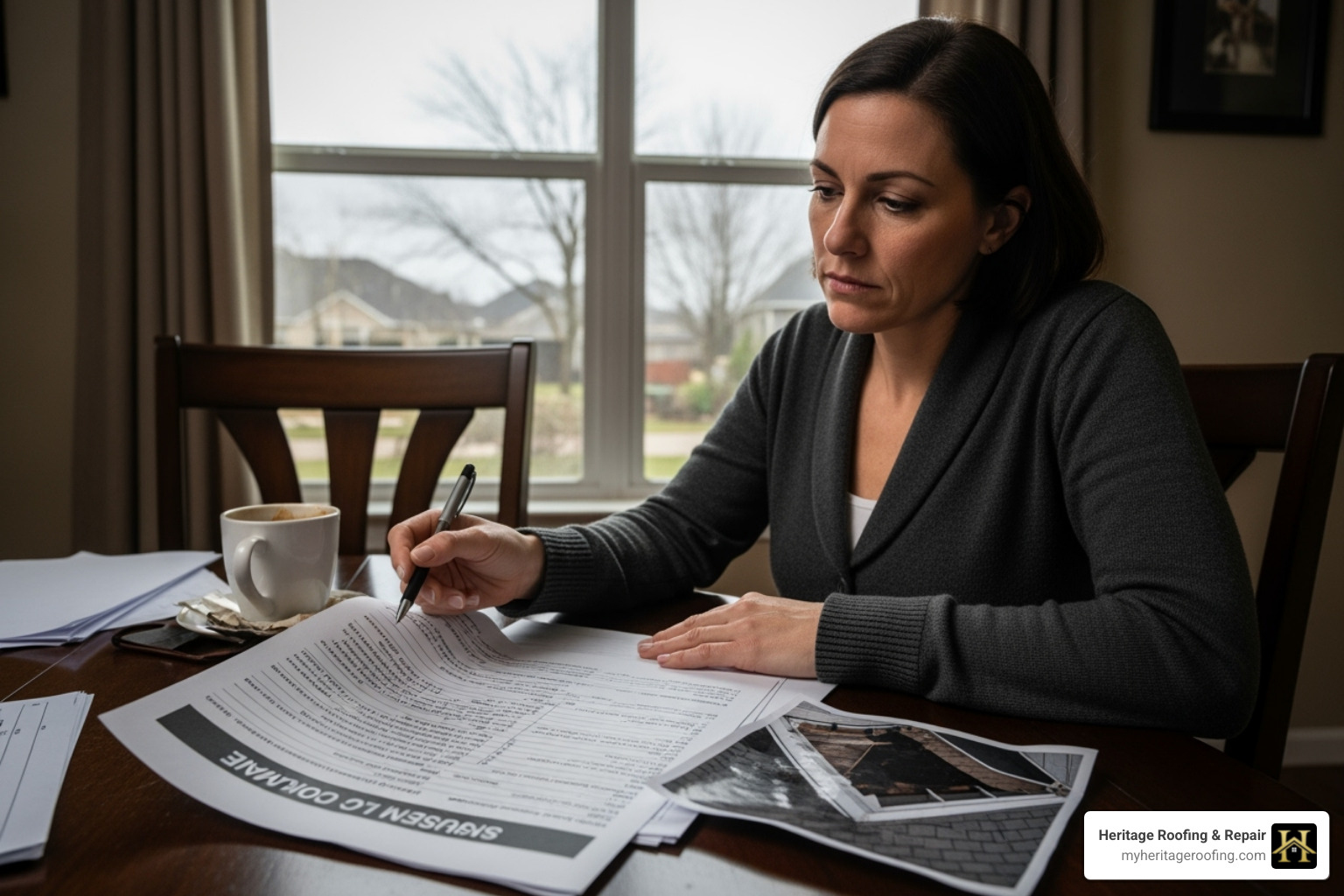
Navigating insurance claims for storm damage
In storm-prone areas like Northwest Arkansas, your homeowners insurance can be a huge help. Policies typically cover sudden damage from hail, wind, or fallen trees, but not general wear and tear. The key to a successful claim is prompt action and thorough documentation. Take photos of the damage, file your claim quickly, and work with your insurance adjuster. We have extensive experience helping homeowners with insurance roof claims and specialize in storm damage roof repair to help you get the coverage you deserve.
Smart ways to save money on your new roof
While you don’t want to cut corners on such an important investment, there are smart ways to potentially reduce your average roof replacement cost:
- Schedule during the off-season: Contractors are less busy in late fall and winter, which can lead to better pricing and faster scheduling.
- Get multiple itemized quotes: Compare detailed quotes from at least three reputable contractors to ensure you’re getting a fair price.
- Choose cost-effective materials: Architectural asphalt shingles provide an excellent balance of durability, aesthetics, and affordability.
- Ask about bundling services: You may get a discount for bundling gutter replacement or other exterior work with your roof.
- Invest in regular roof maintenance: Proactive care extends your roof’s lifespan, delaying the costly expense of a full replacement.
Understanding your financing options
A roof replacement is a significant investment, and not everyone has the cash readily available. Thankfully, several financing options can make the project more manageable:
- Contractor financing: Many roofing companies, including us, offer financing plans through third-party lenders, often with competitive rates.
- Personal loans: These are unsecured loans from banks or credit unions. Rates depend on your credit score, with amounts from $1,000 to $100,000.
- Home Equity Line of Credit (HELOC): If you have equity in your home, a HELOC allows you to borrow against it, typically at lower interest rates.
- FHA Title I loans: These are government-backed loans designed for home improvements, offering fixed rates and longer repayment terms.
- Credit cards: Best for smaller repairs or if you can use a 0% introductory APR offer and pay it off quickly.
We understand that financing can be a complex topic. You can learn more about roofing financing options on our website.
Finding a Trusted Roofing Contractor in Northwest Arkansas
The quality of your roof replacement depends heavily on the skill and integrity of your contractor. Choosing a reputable, local professional is the best way to protect your investment and ensure your home is safe for years to come.
What to look for in a professional roofer
When you’re entrusting someone with the roof over your head, you want to be sure they’re the right fit. Here’s a list of essential qualities to look for:
- Licensed and insured: This is non-negotiable. A licensed contractor meets professional standards, and proper insurance protects you from liability.
- Local reputation and reviews: Check online reviews (Google, BBB), ask for local references, and inquire about their standing in the community.
- Provides detailed, written estimates: A clear, itemized quote explains all costs and the scope of work, preventing surprises.
- Offers strong warranties: Look for contractors who offer both manufacturer warranties on materials and a workmanship warranty on their installation.
- Extensive experience: Experience matters, especially in handling complex roof designs or specific material installations.
- Good communication: A professional contractor will communicate clearly, answer your questions, and keep you informed.
Your local roofing experts in Berryville, AR
For homeowners in the Ozarks, finding a contractor who understands local weather patterns and building codes is essential. We’ve been serving Berryville and the surrounding Northwest Arkansas region for generations, building a reputation for dependable, affordable, and quality craftsmanship. Our team lives and works here, so we understand the specific challenges your roof faces.
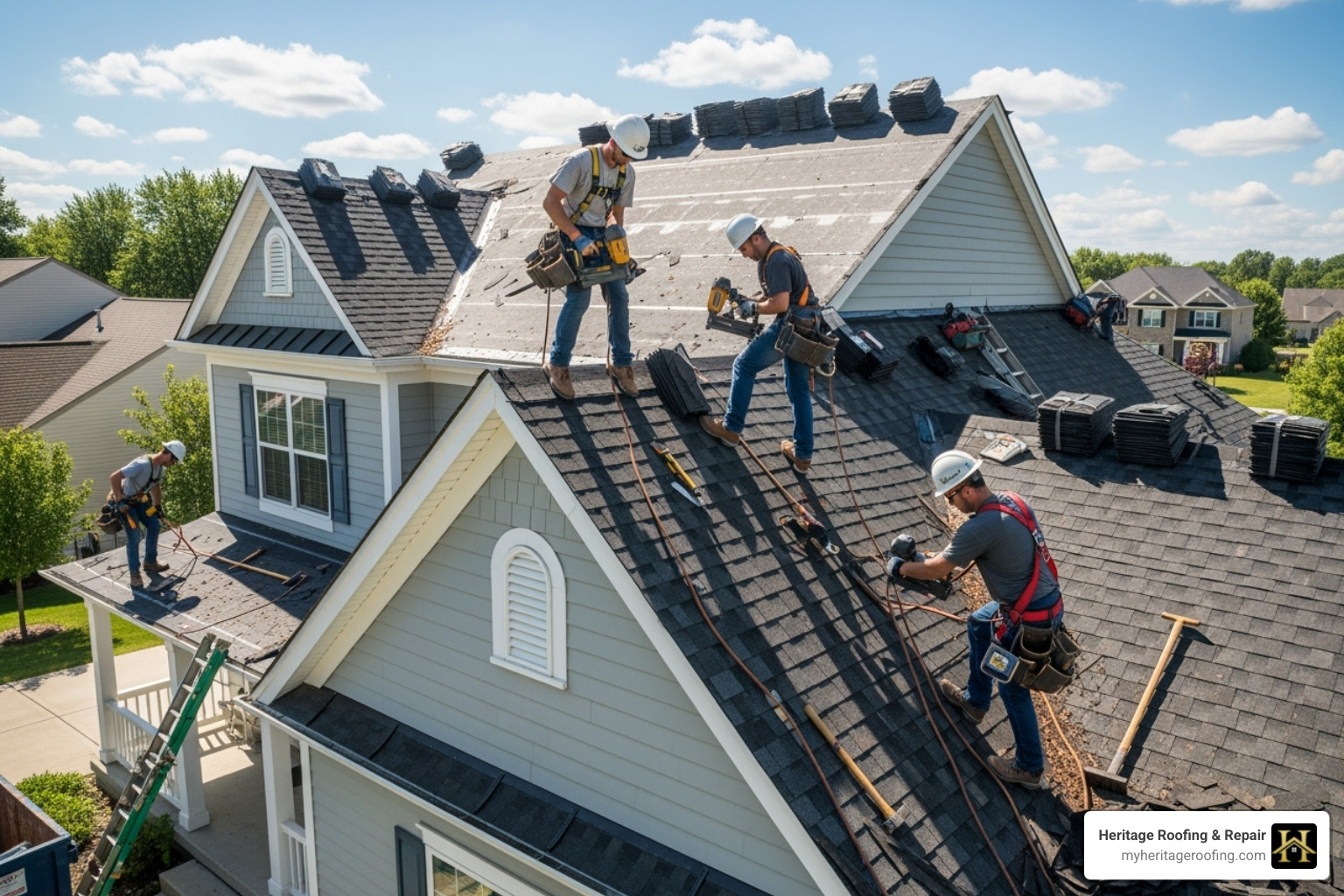
Heritage Roofing & Repair
3458 Arkansas State Hwy 221, Berryville, AR 72616
(870) 654-1164
Our Berryville, AR roofers are dedicated to providing you with a roof that protects your home for decades to come.
Conclusion
Understanding the average roof replacement cost is about more than just a number—it’s about recognizing the value of a well-built, durable roofing system. By considering factors like materials, roof complexity, and labor, you can create a realistic budget. Choosing an experienced, local contractor like Heritage Roofing & Repair ensures quality craftsmanship and peace of mind. Ready to get a clear, honest estimate for your home? Request your free roof replacement quote today.
